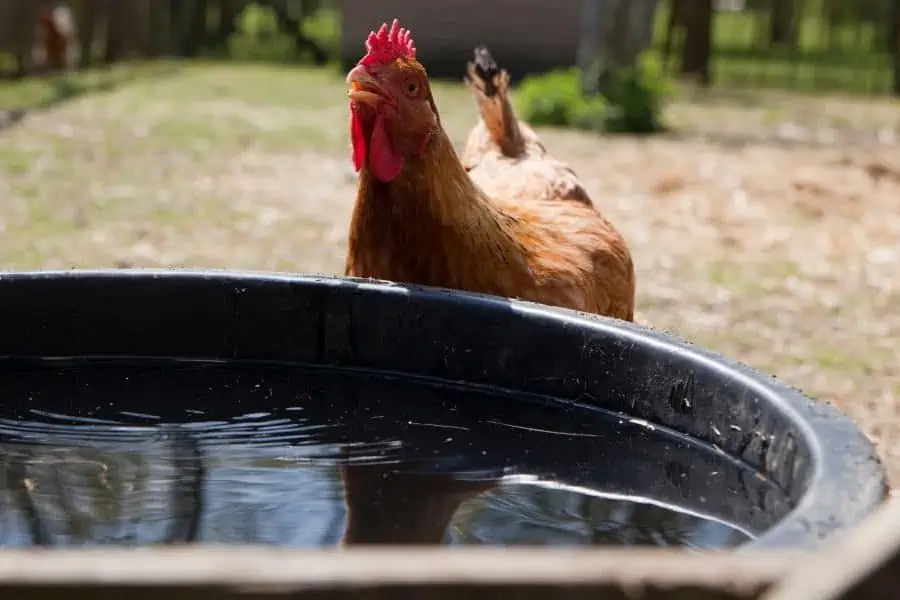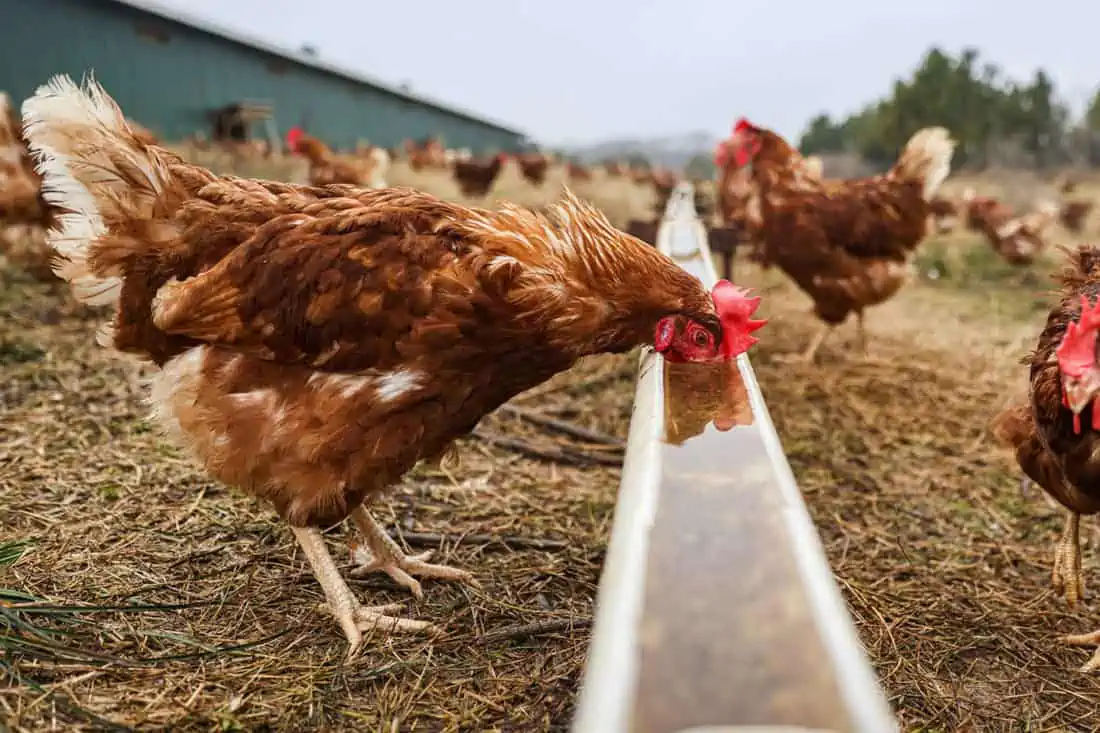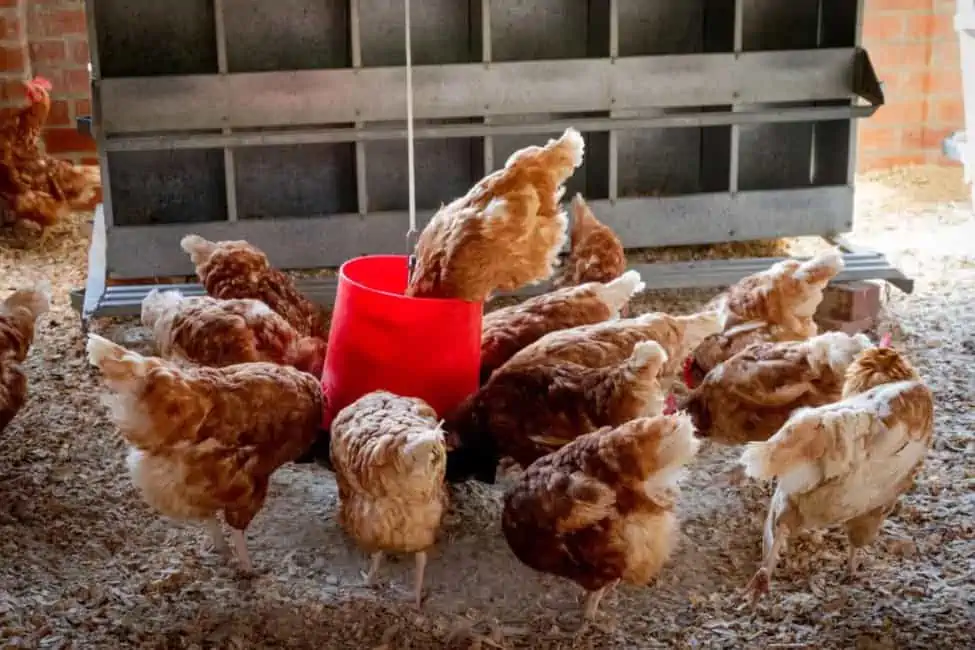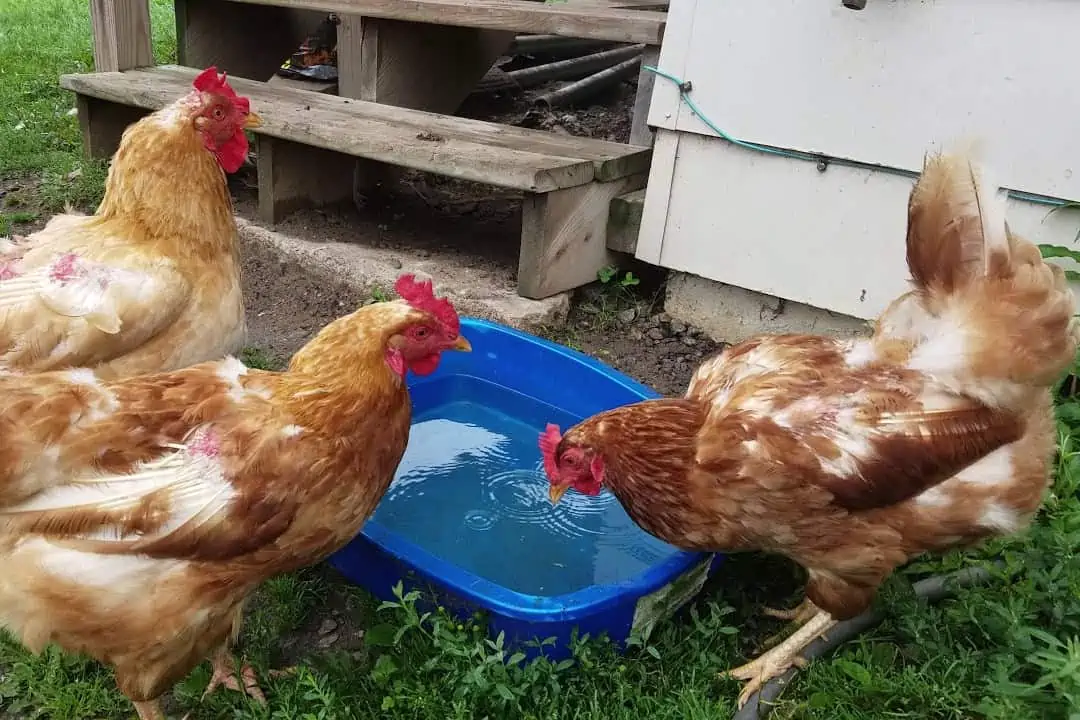If you are a chicken farmer or just starting to raise a poultry farm, there are many things you should know about chickens, especially about their health. And since you are doing this, you’ll eventually know that water is essential to raising chickens. So, how much water do chickens drink, and why is water so important?
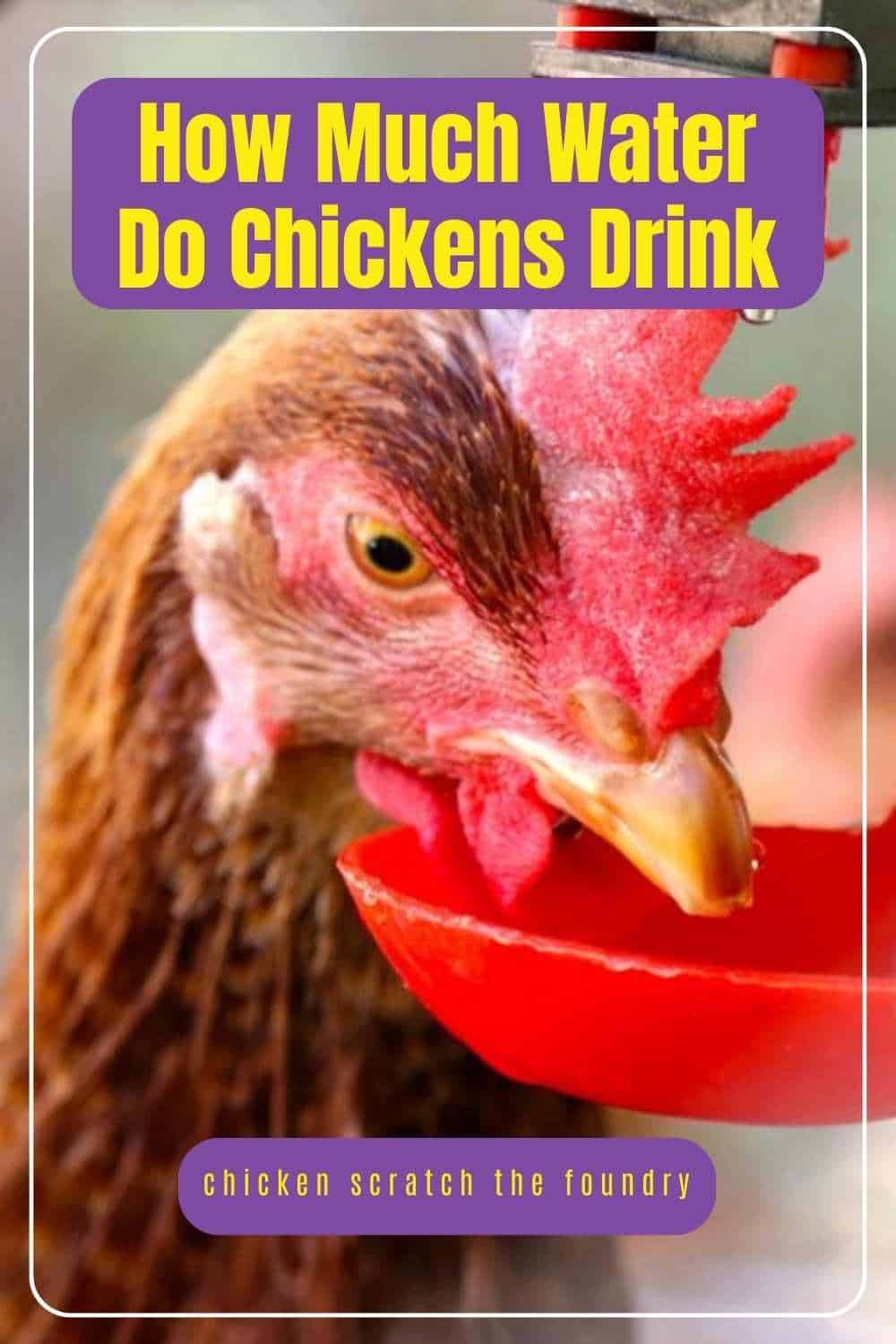
How much water does a full-grown chicken need?
All adult chickens need to drink a significant amount of water, considerably more than younger chickens, so generally, full-grown chickens drink about half a liter of water daily.
Of course, this varies depending on the climate or season. During hot days, a chicken can drink up to almost 1 liter (or about 2 pints). But ensure your chickens drink at least 1 pint of water daily to prevent dehydration.
Do different breeds of chicken drink varying amounts of water?
Yes. Usually, a standard egg-laying chicken drinks half a liter a day. However, those chickens used for meat production drink twice as much. Some chickens, particularly those bred for meat production, even drink over a liter a day. This is because these chickens have a faster metabolism; to keep up with that, they need more water.
Should you restrict a chicken on the amount of water they drink?
No. Never do this if you want your chickens to be healthy. Your chickens should always have access to water and let them drink the amount they want to drink. Water is just as crucial as feeds to your chicken.
Your chickens can last longer with only water than with feeds but no water. So ideally, you should always ensure that your chickens have access to clean water and provide enough containers or waterers to prevent competition and ensure that every chicken can drink as much as it needs.
What happens if a chicken drinks less water than average?
As an owner, you must check on your chickens and see if they are healthy, eating well, and drinking water. This is because there are specific issues that your chickens might experience if they lack certain necessities, especially water. What are these issues? They vary from poor digestion to mental health problems.
Below are the common problems your chickens will experience when dehydrated.
1. Chickens will experience health issues
You must take good care of your chickens because if they get sick or dehydrated, you might experience death after death. This is because chicken illnesses tend to transfer rapidly from one chicken to another, which means you should make sure not a single one of them gets sick. Remember that a significant number of poultry farms experience issues with chicken health, and in severe cases, this can lead to the loss of a large portion of the flock.
2. Chickens might stop laying eggs
Due to dehydration, chickens can have a hard time laying eggs because their body won’t be able to function normally. The water serves as their fuel to give their body energy and helps regulate their body’s internal heat. So imagine if they drink less to no water at all.
3. Chickens will have a hard time digesting and pooping
Like humans, chickens also experience constipation and bad digestion due to a lack of water. This is because water helps digestion, breaks down food, and has a healthy release of manure. You know that chickens live on dry feeds, so giving them water will help their digestion as it will soften the feed and help it to pass through their esophagus, stomach, and intestine.
4. Chickens will be vulnerable to predation
A lack of water means your brain will experience dehydration, which will cause unorganized thinking and distorted thoughts. And if your chickens experience this, they will be vulnerable to predation because they won’t know how to escape or even have good reflexes. So to avoid this, make sure all your chickens have enough water intake.
Dealing with Dehydration in Chickens
Dehydration is not only caused by lack of water alone but it can also be caused by extreme heat and specific illnesses. So, dealing with dehydration and wanting to find the best treatment is to first know what causes this.
For your chickens, if lack of water is the root cause of this, the best way to counter this is to let your chickens drink electrolytes. This drink you can make at home is composed of water, sugar, baking soda, and salt.
Electrolyte drinks will help your chickens replenish their bodies with minerals and nutrients and boost their immunity. Also, when the electrolyte takes effect, and your chickens are getting better, you should give them lots of clean and fresh water and make sure they drink.
How to make sure a chicken drinks enough water daily?
Because water is essential to your flock, ensure they are hydrated and have access to clean water. Here are the best ways to ensure your chickens drink enough water daily.
1. Place waterers
The main key factor to having your chickens drink water is placing waterers and ensuring there are enough for your flock. Waterers serve as the containers where your chickens can drink. Generally, four types of waterers are widely used in poultry farms, and each has different benefits.
- Standard Waterer – Easy to set up.
- Nipple Waterer – Saves water.
- Trough Waterer – Has auto-filling system.
- Chicken Waterer Cups – Keeps water clean.
2. Put clean water
When chickens are thirsty, they drink water from anywhere they can, especially in mud puddles. You should avoid this from happening because chickens tend to pick up diseases from dirty water, so try your best to always put clean water and check your water for any contamination.
3. Teach your chickens
Typically, chickens naturally learn to drink water on their own because this is one of their instinct. However, they only know how to drink water and not where to drink it. So as an owner, you need to teach them to drink from the waterers, especially if you have a nipple waterer, which requires training for them to learn how it works.
Conclusion
Has this article helped you to know how much water chickens drink? If so, you are ready to raise a flock and get the right waterers to drink on. Take note of all the advice and tips we mentioned to have healthy and happy chickens.


Joseph Hudson has been raising chickens for over 15 years. In 2018, he completed the Agriculture & Natural Resources program at Mt. San Antonio College. He currently raises over 1400 chickens on his 7.5-hectare farm. He keeps sharing his experience on raising healthy and happy chickens on Chicken Scratch The Foundry.

